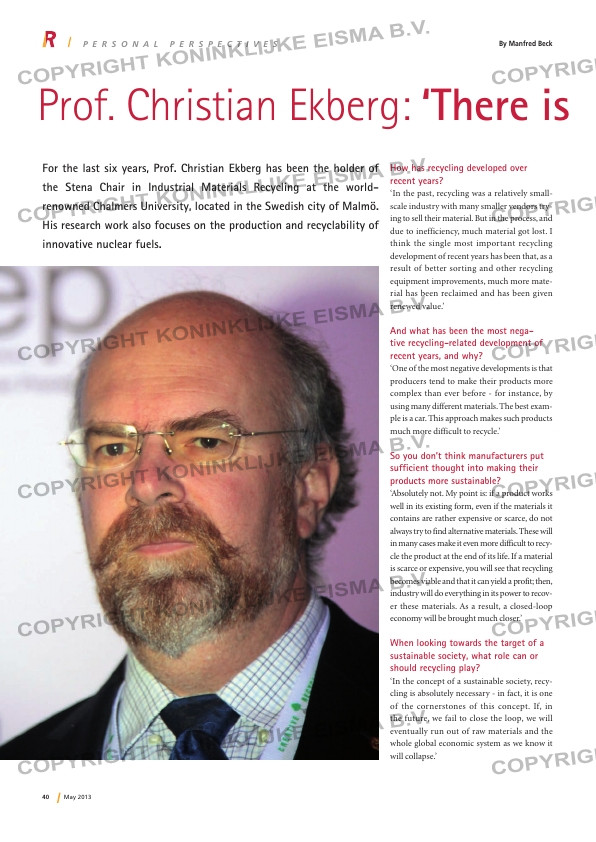Page 40 from: May 2013

40 May 2013
How has recycling developed over
recent years?
‘In the past, recycling was a relatively small-
scale industry with many smaller vendors try-
ing to sell their material. But in the process, and
due to inefficiency, much material got lost. I
think the single most important recycling
development of recent years has been that, as a
result of better sorting and other recycling
equipment improvements, much more mate-
rial has been reclaimed and has been given
renewed value.’
And what has been the most nega-
tive recycling-related development of
recent years, and why?
‘One of the most negative developments is that
producers tend to make their products more
complex than ever before – for instance, by
using many different materials. The best exam-
ple is a car. This approach makes such products
much more difficult to recycle.’
So you don’t think manufacturers put
sufficient thought into making their
products more sustainable?
‘Absolutely not. My point is: if a product works
well in its existing form, even if the materials it
contains are rather expensive or scarce, do not
always try to find alternative materials. These will
in many cases make it even more difficult to recy-
cle the product at the end of its life. If a material
is scarce or expensive, you will see that recycling
becomes viable and that it can yield a profit; then,
industry will do everything in its power to recov-
er these materials. As a result, a closed-loop
economy will be brought much closer.’
When looking towards the target of a
sustainable society, what role can or
should recycling play?
‘In the concept of a sustainable society, recy-
cling is absolutely necessary – in fact, it is one
of the cornerstones of this concept. If, in
the future, we fail to close the loop, we will
eventually run out of raw materials and the
whole global economic system as we know it
will collapse.’
P e r s o n a l P e r s P e c t i v e s By Manfred Beck
For the last six years, Prof. Christian Ekberg has been the holder of
the Stena Chair in Industrial Materials Recycling at the world-
renowned Chalmers University, located in the Swedish city of Malmö.
His research work also focuses on the production and recyclability of
innovative nuclear fuels.
Prof. Christian Ekberg: ‘There is a lack of long-term strategy’
RI-4_Interview_Ekberg.indd 40 03-05-13 14:12



